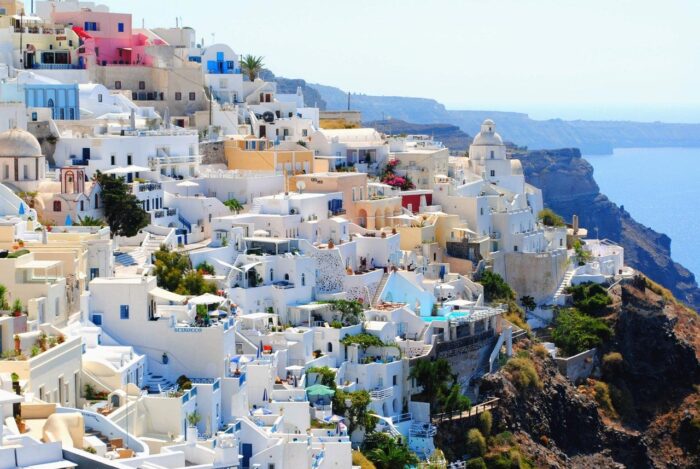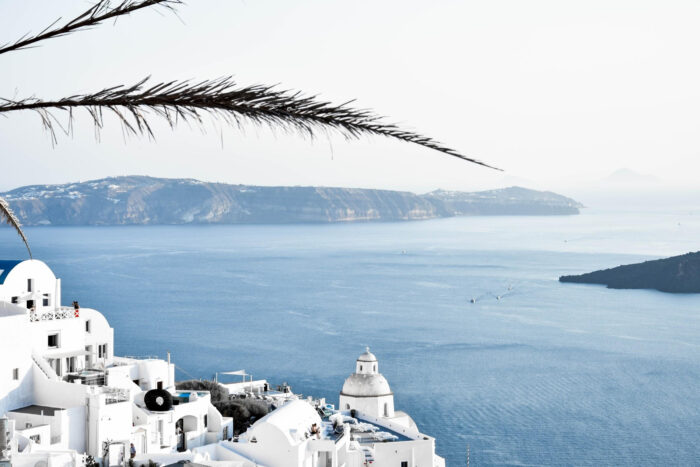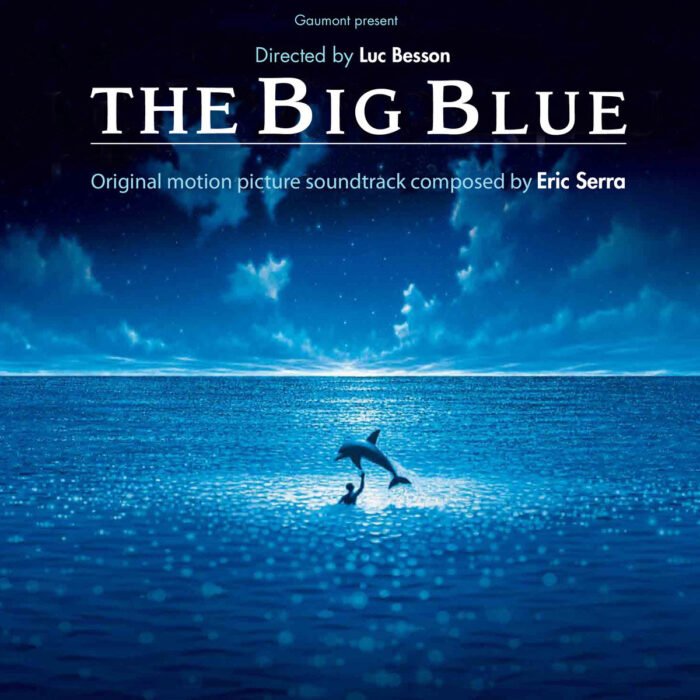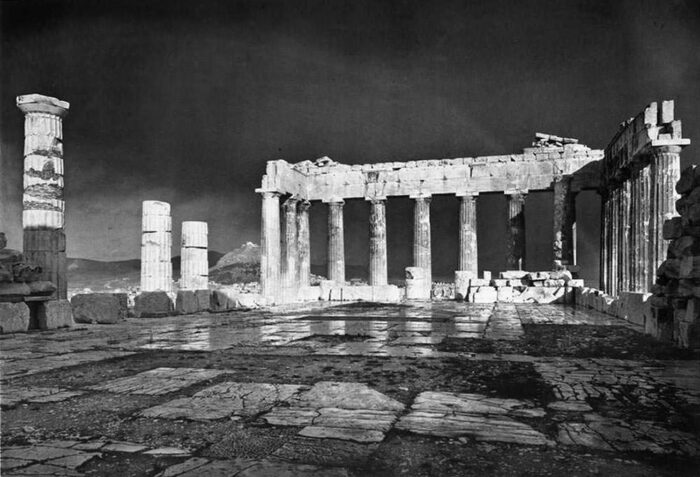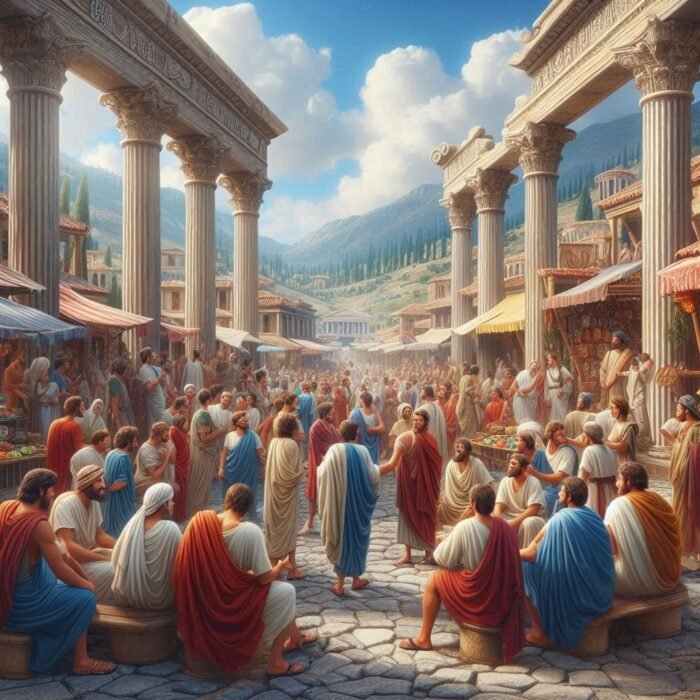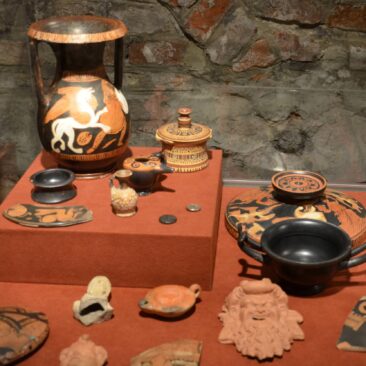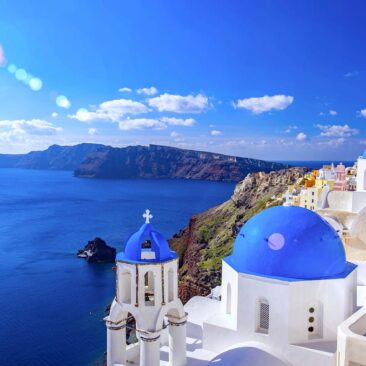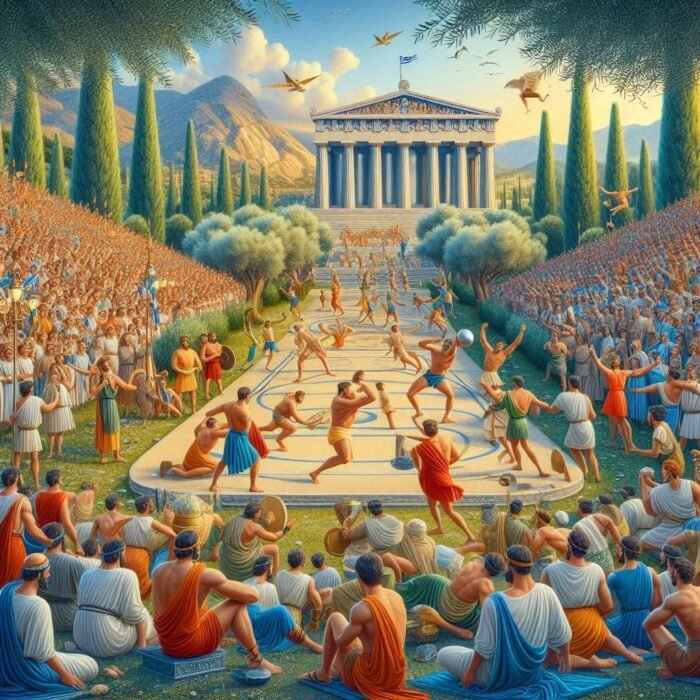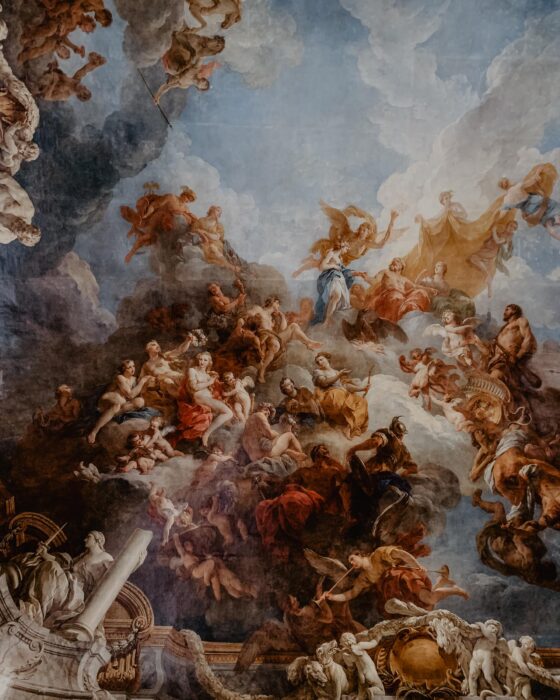Last updated on November 4th, 2025 at 10:50 pm
Long ago, storytellers imagined that the islands and mountains of this land were set apart for a special purpose. Among the scattered rocks of the Aegean and the golden shores of the Ionian, the Hellenes built homes, cities, and myths. Over centuries, they shaped a culture and a civilization that would echo far beyond these shores.
Here begins a journey through Hellas, the Land of Gods — a land where history, mythology, and the everyday lives of its people intertwine in ways both magical and real.
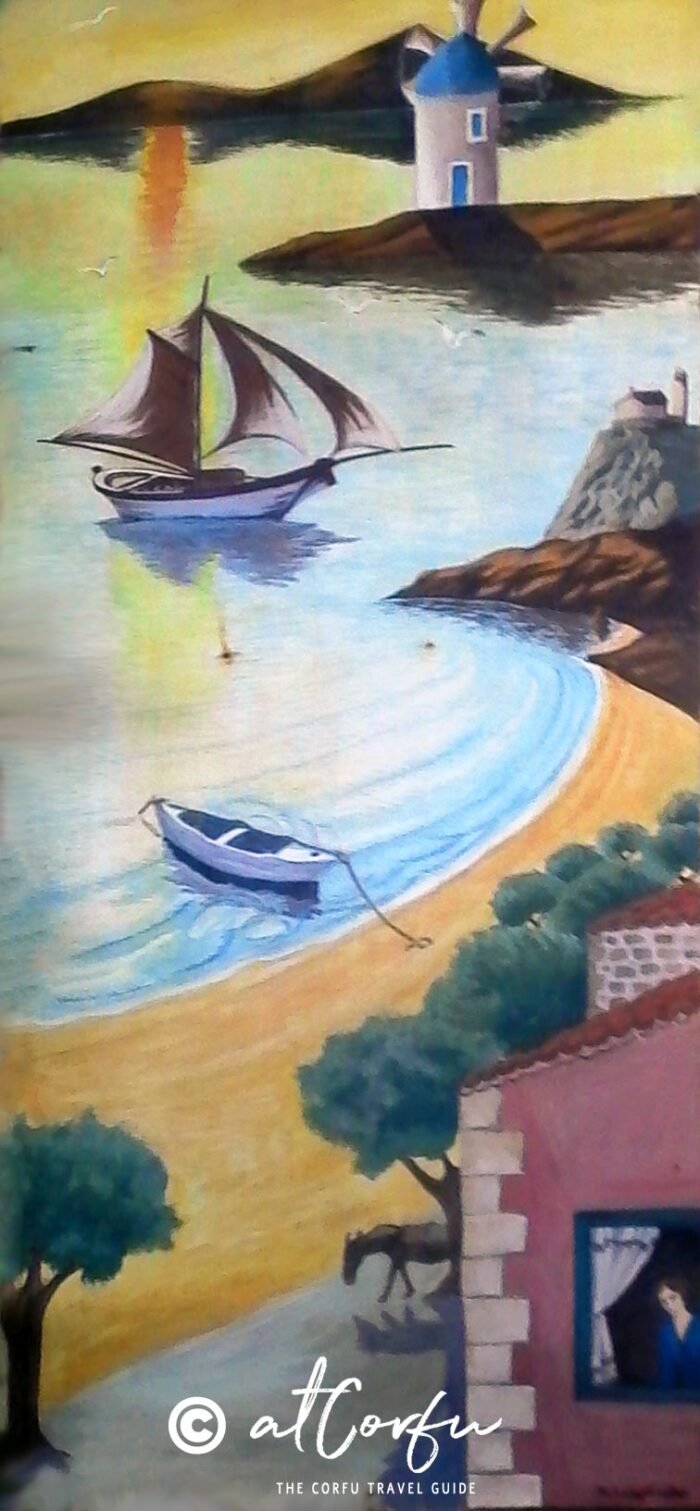

Welcome to Greece. This page highlights the culture, hidden stories, and traditions that define the country.
Greece is more than beaches, whitewashed houses, or ancient monuments. Here, myths and history intertwine, and the influence of gods and heroes still echoes in daily life and modern creativity.
Despite its small size, Greece boasts a rich artistic heritage, with writers, poets, musicians, and other creators. Modern Greek music, for example, goes far beyond Zorba the Greek, blending centuries-old traditions with poetry and contemporary expression.
All posts to Greece
Greece’s Culture and History
Greece has a history and culture stretching back thousands of years. From the Acropolis in Athens to the ancient theaters of Epidaurus, its architecture and art have shaped the world.
Greek culture blends ancient traditions with modern creativity. Museums and archaeological sites preserve the legacy of civilizations that contributed to philosophy, science, and democracy, while contemporary life thrives with arts, music, and festivals across cities and islands.
Music, dance, and visual arts remain central to Greek heritage. Traditional styles like the Cretan syrtos coexist with modern genres, and theater and painting continue to flourish. Whether in Athens or Thessaloniki, the cultural scene is diverse and vibrant.
Greek cuisine reflects its history and people. Recipes combine centuries-old techniques with fresh, local ingredients, from moussaka to coastal seafood.
Throughout Greece, history is visible everywhere — ancient temples, Byzantine churches, and Venetian fortresses. Each region has unique traditions, crafts, and festivals, offering a deep glimpse into Greek life.
Ultimately, Greek culture and history are a shared human heritage. From ancient philosophy to modern arts, from festivals to archaeological wonders, Greece offers a rich cultural journey for every traveler.
Plan Your Trip to Greece
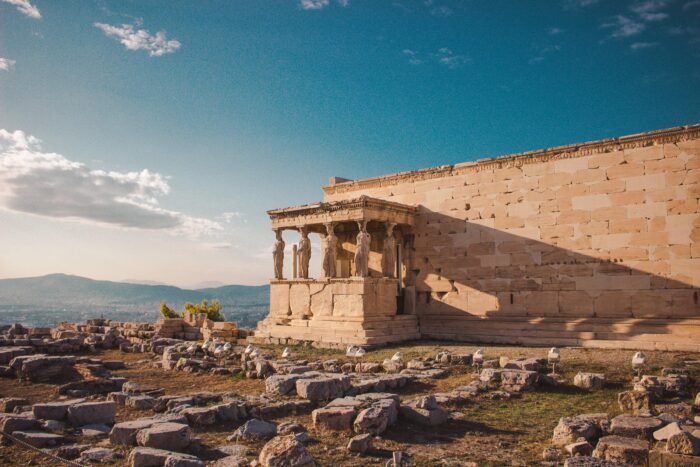

If you’re dreaming of a trip straight out of a painting, Greece is where your adventure begins. Beyond its iconic islands and picturesque villages, the country is a journey through time, from ancient wonders to vibrant modern life.
The islands are unforgettable. Santorini’s blue domes rise above the Aegean, Mykonos blends wind-swept streets with lively nightlife, and golden beaches stretch along the coast with crystal-clear waters.
Greece is more than its scenery. The Parthenon in Athens is a living piece of history, and the ruins of Knossos in Crete transport you thousands of years back to the Minoan civilization.
This country welcomes every kind of traveler. From luxury resorts to backpacking adventures, you can enjoy local cuisine in charming villages, swim on pristine beaches, or explore the cultural and historical treasures that make Greece unique.
Whether you’re hiking, relaxing under the Mediterranean sun, or exploring ancient ruins, Greece offers an unforgettable mix of history, culture, and natural beauty.
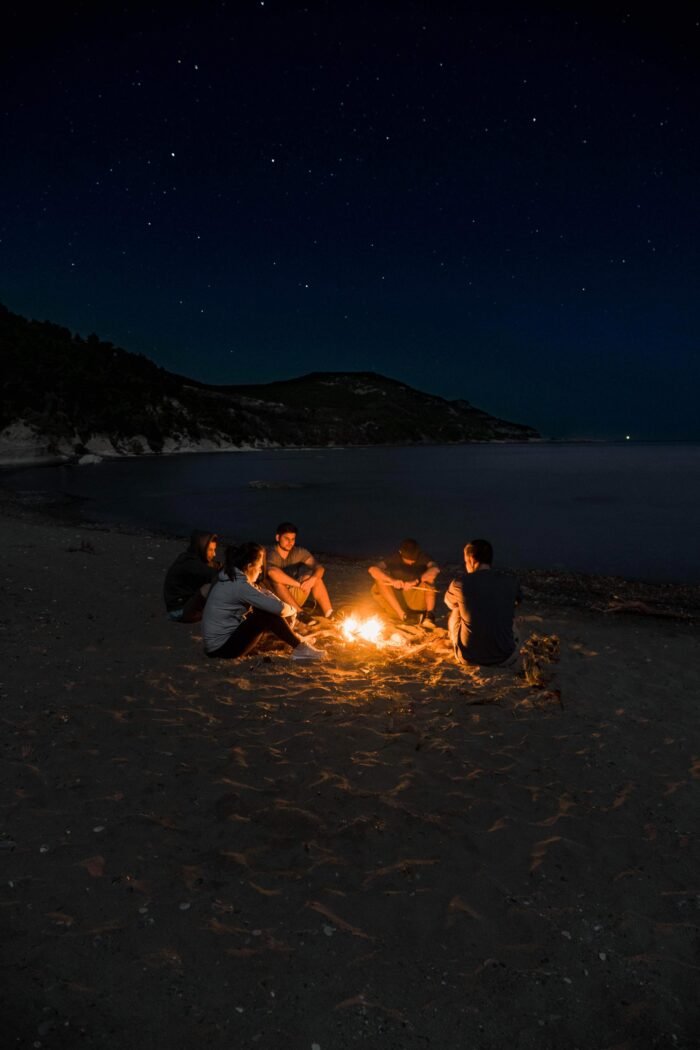

Top Travel Tips for Greece
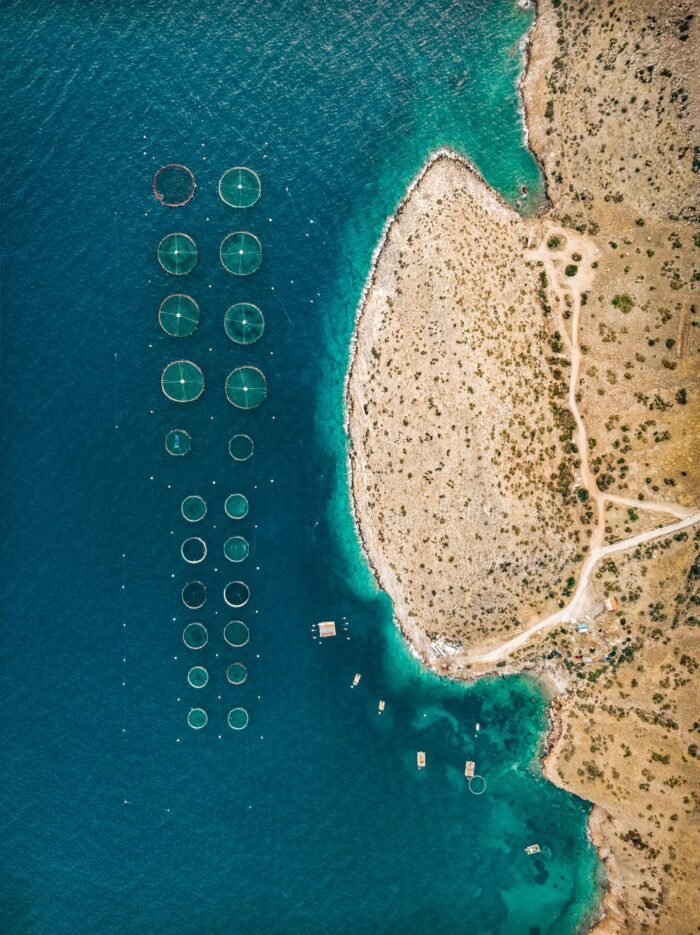

Before exploring Greece’s ancient ruins and sun-soaked beaches, some preparation helps ensure a smooth adventure. Learn about transport and accommodation options, local customs, and safety tips so you can explore Athens like a pro and savor Greek cuisine, from souvlaki to baklava.
Understanding local culture and respecting traditions will enhance your experience. Knowing what you can bring into the country, visa requirements, currency exchange, and weather patterns can save you time and hassle.
From historic sites to stunning beaches, Greece offers something for every traveler. Its nightlife, festivals, and vibrant cities add another layer to your journey.
With a little planning, you can navigate Greece’s ancient wonders and modern culture with ease, making the most of every moment.
Must-See Attractions in the Greek Islands
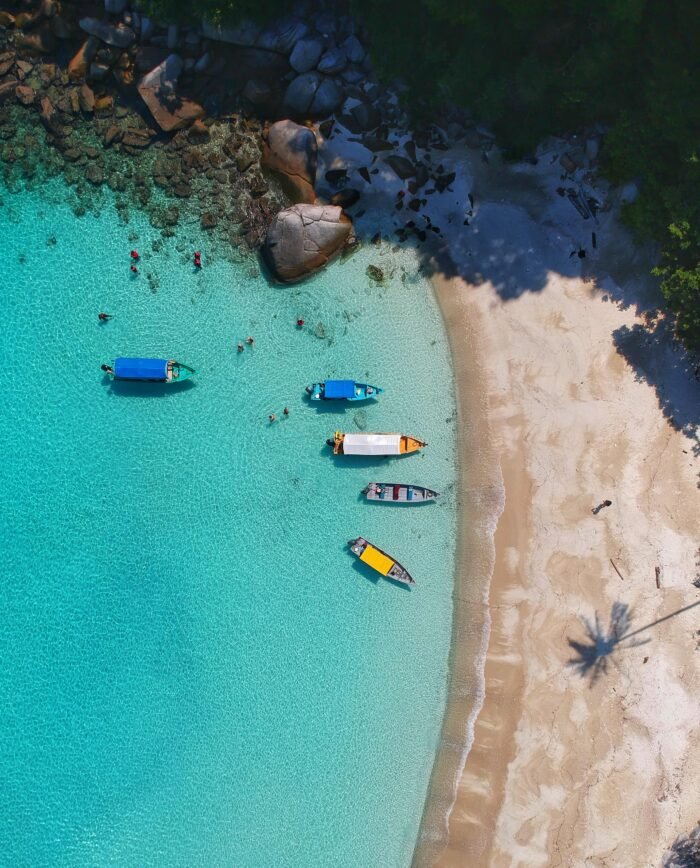

From the streets of Santorini to the vineyards of Crete, Greece offers experiences that linger in memory.
Stroll through Athens’ Acropolis and soak in stories of ancient civilization, or dive into the clear waters around Rhodes. Greek cuisine in seaside tavernas brings history and flavor together, from fresh seafood to classic meze.
History lovers and sun seekers alike will find something to enjoy. Iconic landmarks like Delos and Delphi transport you centuries back, while smaller gems like Hydra and Ios offer charming ports and lively nightlife.
Greece is a journey through history, culture, and breathtaking landscapes—each island revealing a unique side of the country.
Beautiful Greek Landscape
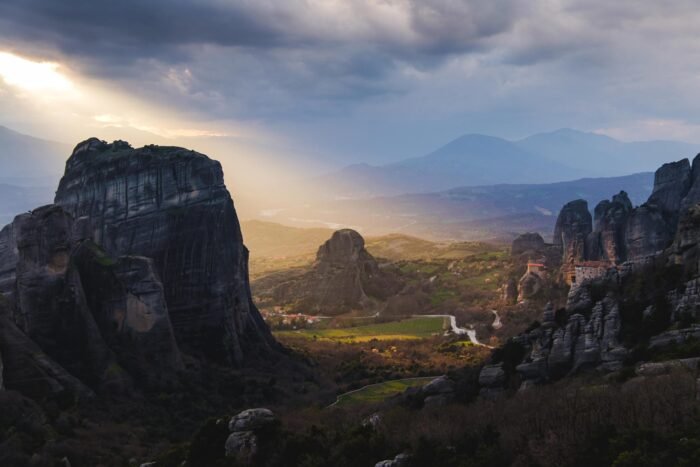

Get ready to fall for Greece’s stunning landscapes.
Sunny beaches with the Aegean’s blue waves and the Ionian’s golden sands and emerald waters offer pure bliss. From majestic mountains to serene shores, Greece is full of natural wonders—perfect for beach lovers and nature explorers alike.
Vibrant cities of Hellas
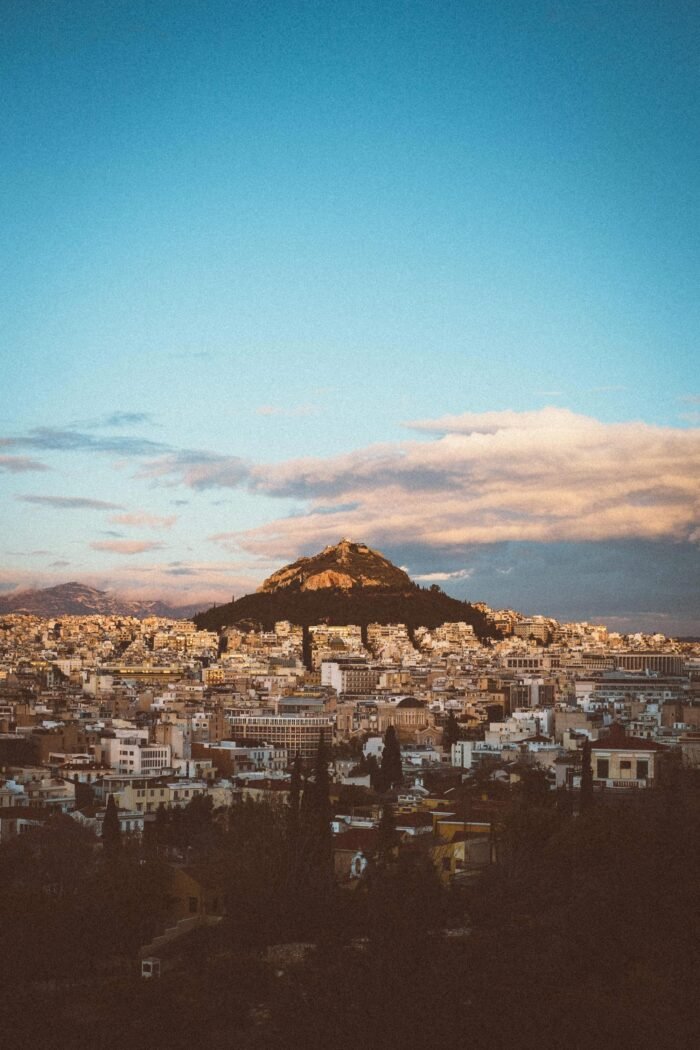

Get ready to embark on a journey through Greece’s amazing cities and charming villages!
Stroll through the bustling streets of Athens, feel the pulse of Thessaloniki, or immerse yourself in the history of Heraklion—urban adventures await. Wander the charming villages of Mykonos, Santorini, and Rhodes, each with its unique atmosphere and secrets.
Ancient Ruins and Temples
Step back in time in the Greek countryside to explore Europe’s iconic ancient ruins, like the legendary Parthenon, and marvel at historic architecture. A reliable travel guide will help you create the perfect plan, whether diving into Athens’ vibrant culture or wandering its lively streets.
No visit to Greece is complete without the Acropolis—a journey to the heart of classical Greece, where monumental treasures await.
Are you ready to write your own Greek adventure story? Let’s explore!
Exciting Outdoor Activities in Greece
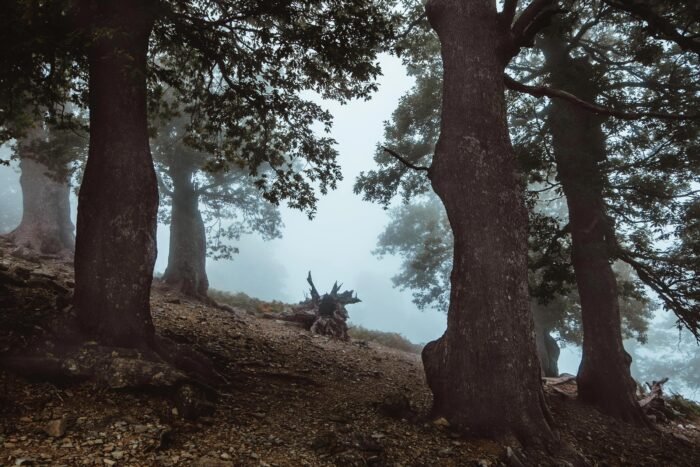

Get ready to lace up your hiking boots and embrace the Greek outdoors! Whether you’re an experienced hiker or looking for fun on the beach, Greece has you covered.
The mountains call with trails that take your breath away, while the beaches invite you to swim, snorkel, or simply relax in the sun. From hiking to water sports and kayaking, Greece offers activities for every kind of adventure lover.
Whether you’re a solo traveler, a family seeking fun, or a couple looking for romance, Greece creates memories that last. Your Greek adventure awaits!
Food and Gastronomy
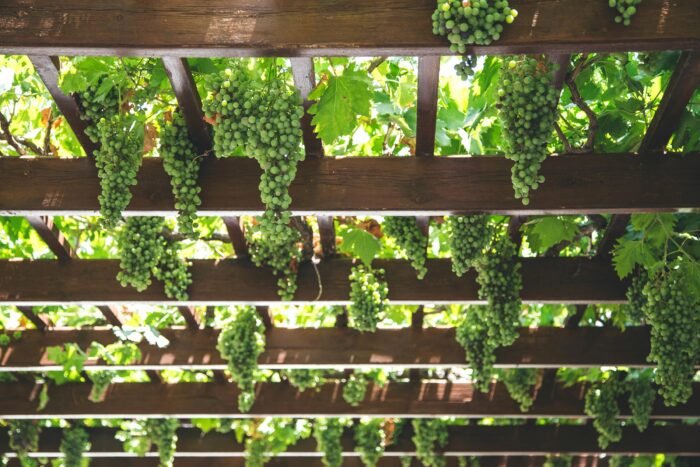

Calling all food lovers!
Get ready to embark on a magical culinary journey in Greece. From Mediterranean delights to classic Greek recipes, this country is a paradise for food enthusiasts.
Exploring the islands isn’t just about sun and scenery – it’s about savoring every bite of local cuisine. Imagine biting into a juicy gyro, indulging in layers of moussaka, or enjoying the crispy goodness of spanakopita. Each dish is a love letter to Greece’s rich flavors and traditions.
Every region has its own culinary identity: simple, hearty dishes in Crete, delicious creations in Corfu, creamy Greek yogurt with honey in Santorini, or the freshest seafood in Mykonos.
Dive into the irresistible world of Greek cuisine – your taste buds are in for an unforgettable adventure!
Adventure Opportunities in Greece
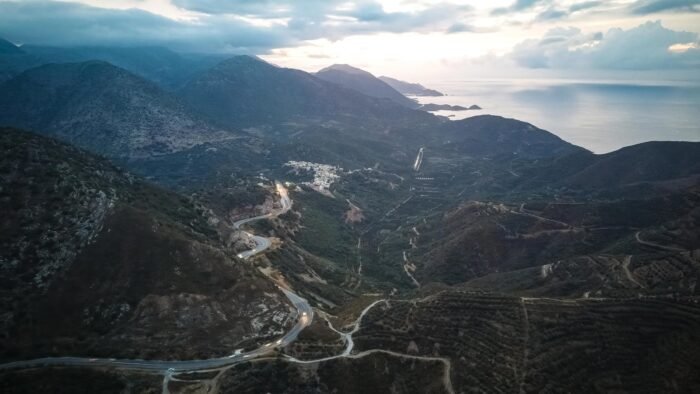

Calling all thrill-seekers and adventure lovers!
Get ready to embark on the ultimate adventure in Greece. Whether you’re an experienced hiker or seeking some beachside fun, Greece has you covered.
If you’re up for a challenge, the mountains beckon with trails that will take your breath away – literally and figuratively! Prefer the water? Catch some waves or snorkel in the warm coastal waters – the beaches await.
And that’s just the start. From hiking and kayaking to water sports, Greece offers a buffet of outdoor activities for every type of adventurer.
Greece doesn’t just offer experiences; it creates memories.
Whether you’re a solo wanderer, a family seeking fun, or a couple in search of romance, this Mediterranean paradise is ready to steal your heart. Dive in and embrace the adventure – every corner of Greece has something unforgettable to offer.
Most Popular Islands to Visit
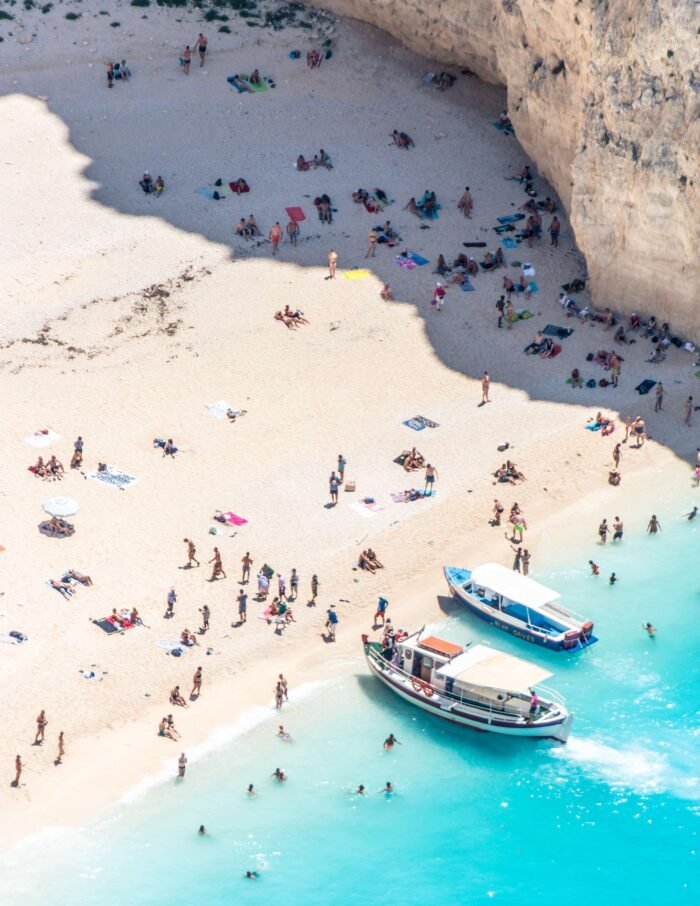

Imagine a treasure trove of islands, each holding a piece of Greece’s heart. With 6,000 islands scattered across the Mediterranean, this country has something truly special to offer.
Here’s the twist – only 227 are inhabited, leaving countless hidden gems waiting to be discovered.
Corfu, with its lush landscapes and vibrant culture, welcomes you with open arms. Santorini, a picturesque dream with its iconic blue roofs and sunsets, invites exploration.
For those craving cosmopolitan energy, Mykonos delivers – lively nightlife, stunning beaches, and endless fun. Rhodes offers a historic escape wrapped in medieval charm, while Crete enchants with rustic villages, tantalizing cuisine, and breathtaking scenery.
No matter which island you choose, warm hospitality and unforgettable views await. Wander Corfu’s cobblestone streets, watch Santorini’s sun dip below the horizon, or dance the night away in Mykonos – each island promises a unique adventure.
Greece’s islands aren’t just a vacation – they’re a journey, leaving a piece of their magic in your heart.
Corfu
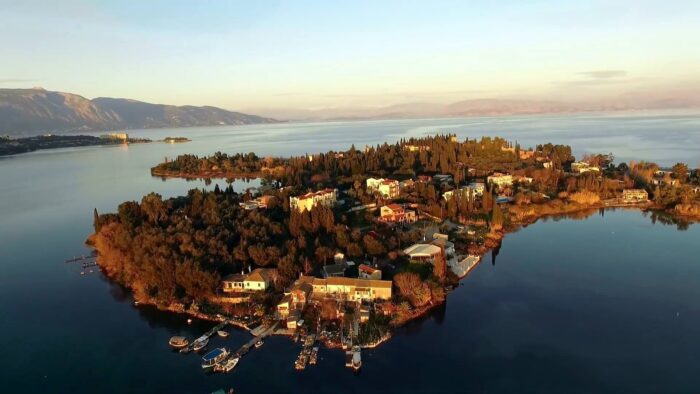

Imagine a paradise that combines enchanting beaches with Venetian charm – that’s Corfu, a jewel on Greece’s northwest coast.
For sun-seekers, Corfu is a dream. Sparkling sands and thrilling water sports make the beaches unparalleled. Lounge by the waves or ride them – the choice is yours.
But Corfu isn’t just about beaches. Coastal trails offer breathtaking views, and as the sun sets, the island transforms with vibrant nightlife that pulses with energy.
Food lovers are in for a treat. Local cuisine bursts with flavor, offering a delicious introduction to Corfu’s culinary scene.
History and culture are everywhere. Stroll through Corfu’s old town, where Venetian-style buildings whisper tales of the past. Explore the two Venetian castles, churches, monasteries, and museums, or wander traditional villages with medieval mansions.
Shopping? Corfu delivers, from charming markets to chic boutiques.
Whether you’re wandering cobblestone streets, savoring local dishes, or immersing yourself in history, Corfu promises an unforgettable adventure. In Corfu, possibilities are endless.
Santorini
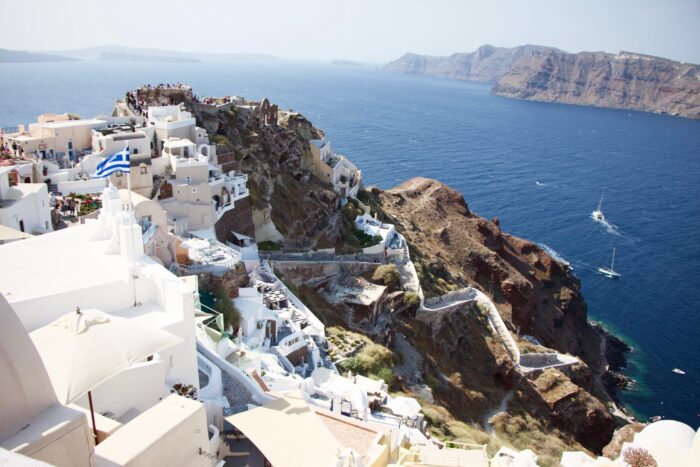

Step into the enchanting canvas of Santorini, a true superstar among the Greek islands. Thousands visit its shores each year, and it’s easy to see why.
Imagine a dramatic volcanic landscape dotted with whitewashed buildings crowned with vibrant blue roofs, all overlooking the mesmerizing azure waters of the caldera below – a scene straight from a dream.
Santorini is more than a visual marvel. Romance fills the air, carried by the salty sea breeze. It’s no wonder the island ranks among the world’s top honeymoon destinations – Greece’s best-kept secret for lovers everywhere.
For those seeking treasures, explore charming wineries or delve into archaeological sites that echo centuries of history. Or simply surrender to the breathtaking views of the caldera, visible from countless vantage points across the island.
A staggering fact: Santorini is the legacy of a colossal volcanic eruption 3,600 years ago. In that event, two-thirds of the island sank beneath the waves, leaving a dramatic and captivating landscape.
The sea within the ancient caldera holds the memory of that power. Visit Akrotiri, the “Pompeii of Greece,” where the ruins reveal a catastrophe that occurred 15 centuries before Pompeii, marking the decline of the Minoan civilization on Crete.
Whether tracing the footsteps of history or savoring every sunset-drenched moment, Santorini will captivate your senses and leave an indelible mark on your heart.
Mykonos
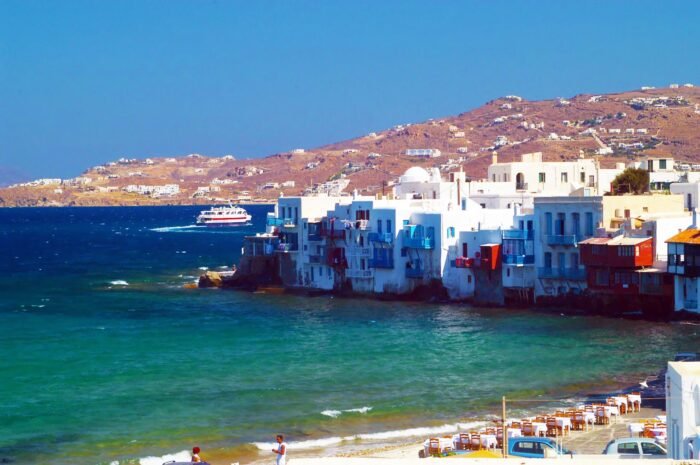

Welcome to the enchanting island of Mykonos! Cobblestone streets wind through whitewashed buildings topped with vibrant blue roofs, while flower-filled pots add bursts of color across the island. It’s a sight to behold.
Mykonos is known as “The Island of the Winds,” and for good reason. The playful sea breezes sweep across the landscape, adding a touch of magic and romance to every corner.
By night, the island comes alive. Mykonos is famous for its vibrant nightlife, from bustling bars and nightclubs to seaside restaurants, where fun stretches from dusk till dawn.
During the day, the island transforms into a shopping and cultural haven. Local artisans display their crafts in charming boutiques and markets, offering a chance to take home a piece of Greece.
Whether you’re wandering the cobblestone alleys, soaking up the sun, or dancing the night away, Mykonos promises an unforgettable experience. Add it to your Greece travel plans for beauty, culture, and excitement all in one.
Crete
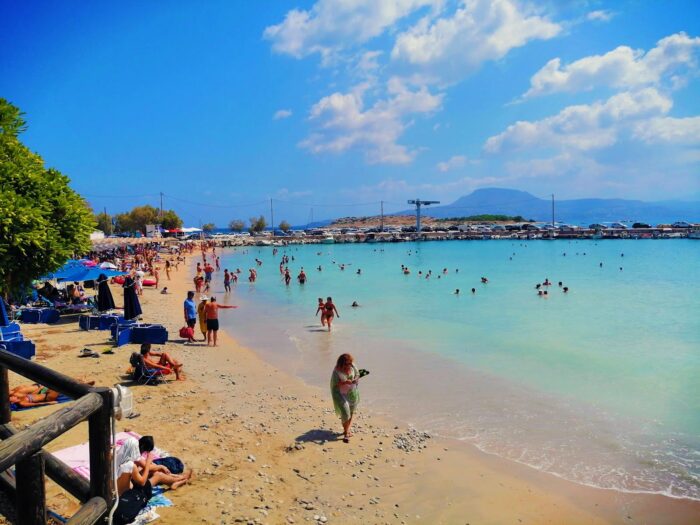

Crete, the largest Greek island, is a land of contrasts — mountains, beaches, and ancient ruins.
Explore the Minoan Palace of Knossos, wander through traditional villages, or hike the Samaria Gorge.
The island’s cuisine is legendary, from fresh seafood to cheeses and raki. Crete offers history, adventure, and gastronomy in one sweeping experience.
Rhodes
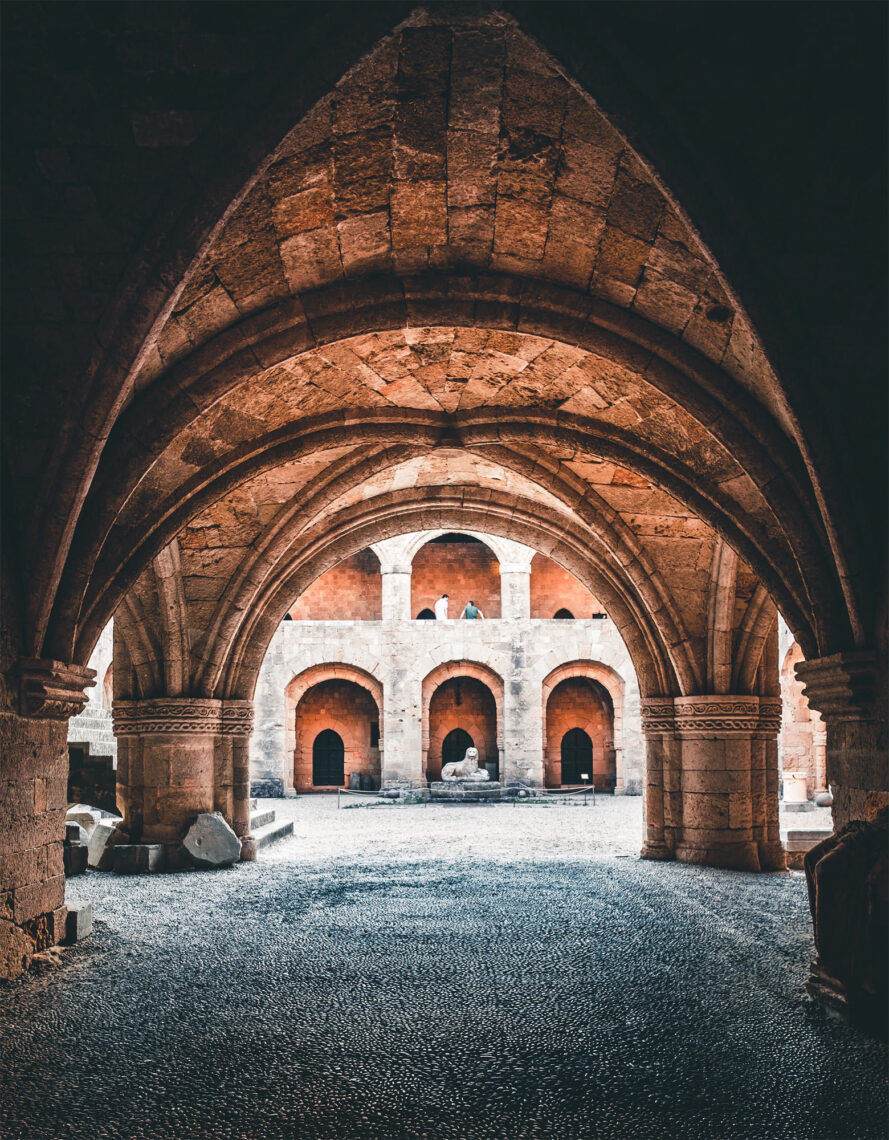

Rhodes blends medieval history with sun-soaked beaches.
Walk through the UNESCO-listed Old Town, admire the Palace of the Grand Master, and explore ancient ruins at Kamiros.
For nature lovers, Lindos offers hiking trails with panoramic views. The local tavernas serve freshly caught seafood and traditional mezes, making Rhodes a balanced mix of culture and relaxation.
Zakynthos
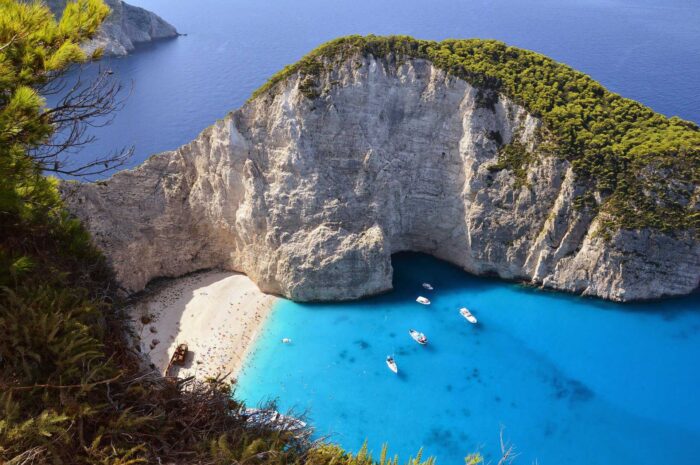

Zakynthos, famous for Navagio Beach and its dramatic cliffs, is a paradise for beach lovers and photographers.
Beyond the iconic shipwreck cove, explore blue caves, hidden coves, and traditional villages. Turtle spotting in Laganas Bay adds an eco-adventure dimension to the island experience.
Kefalonia
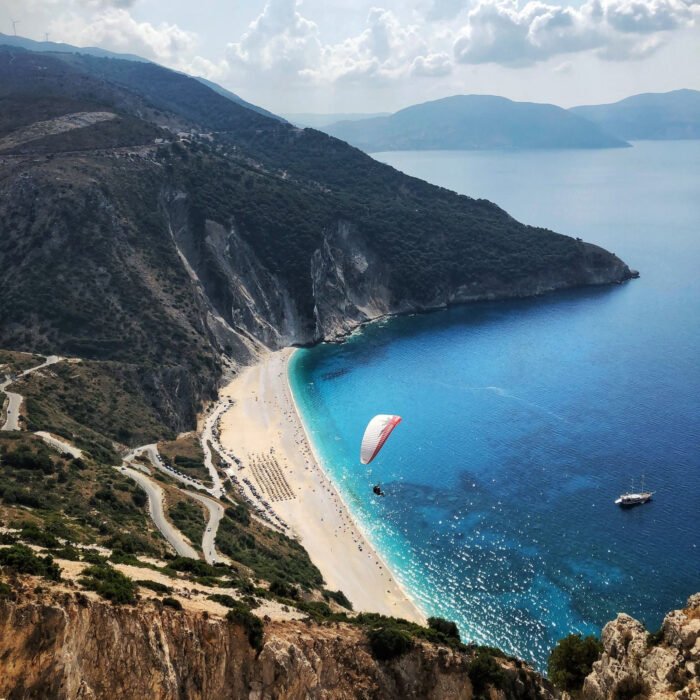

Kefalonia offers rugged landscapes, turquoise waters, and charming villages.
Myrtos Beach is legendary for its postcard-perfect beauty. Hike to Mount Ainos, explore Melissani Cave, and enjoy authentic local cuisine featuring fresh seafood and local cheeses.
Beyond the Main Islands


Other hidden gems include Naxos with its ancient temples, Paros with traditional villages, and Hydra, a car-free haven perfect for strolls.
Delos offers sacred ruins, while Ios entices the young and adventurous with vibrant nightlife and pristine beaches.
Hellas’s islands collectively offer a mix of adventure, relaxation, history, and gastronomy. Each island tells its own story, blending ancient culture with natural beauty, making every visit an unforgettable journey.
About the magic of Greece
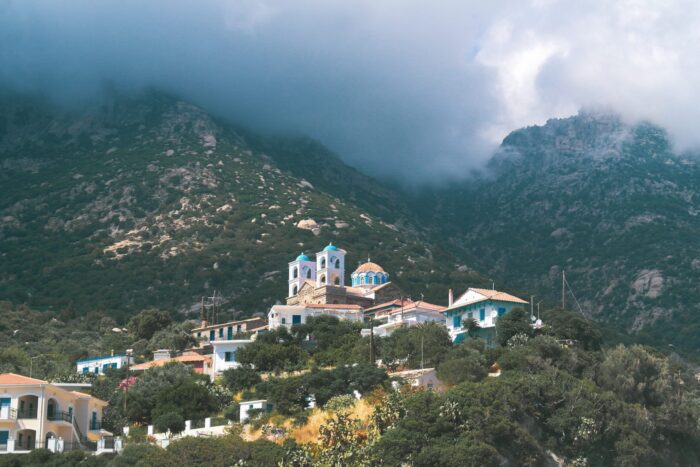

We want to help you discover the magic of Greece and its stunning islands.
Our site goes beyond the usual travel tips, diving into the rich history and mythology that have shaped this incredible nation. Step into the past and explore the stories of the Greek gods, the creation of the world, and the legendary creatures of ancient myths.
Of course, no trip to Greece is complete without its world-famous beaches. We’ve highlighted the most spectacular coastlines across the islands, from hidden coves to iconic shores.
Our guide also covers Greece’s vibrant culture, breathtaking nature, and practical insider tips that turn a good trip into an unforgettable adventure. Discover the best honeymoon spots, local customs, and secret gems that only seasoned travelers know.
Whether you’re a history enthusiast, a beach lover, or a curious explorer, this guide is your passport to the treasures of Greece. Let’s embark on an unforgettable journey!
Greek Mythology
To Conclude
Now that you’ve explored this page, you’re ready to experience the Greek islands like a pro. From lively towns to hidden villages, these islands offer something for every traveler.
Picture leisurely days by the azure waters, exploring ancient ruins, savoring local cuisine, and soaking in breathtaking sunsets. Whether you seek relaxation or adventure, Greece is a treasure chest full of unforgettable memories.
So pack your bags and set off on a journey to the enchanting land of Greece. Adventure, discovery, and awe await—your dream Greek getaway is just a flight away.





